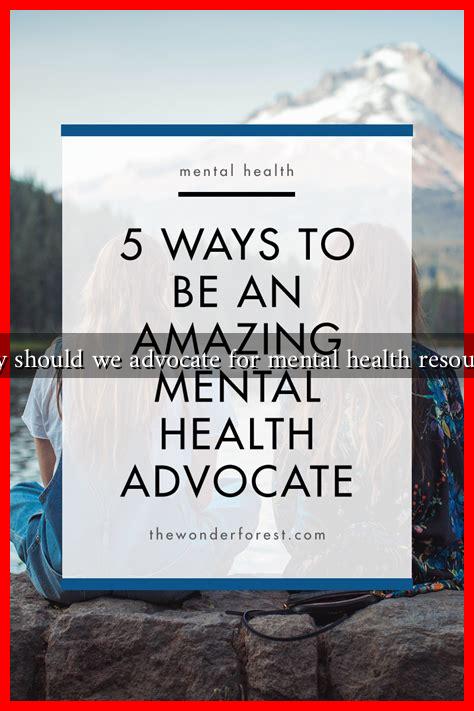-
Table of Contents
Why Should We Advocate for Mental Health Resources?
Mental health is an essential component of overall well-being, yet it often remains overlooked in discussions about health care. The stigma surrounding mental health issues, coupled with a lack of resources, can lead to devastating consequences for individuals and communities. Advocating for mental health resources is not just a moral imperative; it is a necessity for fostering healthier societies. This article explores the importance of mental health advocacy, the current state of mental health resources, and actionable steps we can take to promote mental well-being.
The Current State of Mental Health Resources
Despite growing awareness of mental health issues, resources remain inadequate in many regions. According to the World Health Organization (WHO), approximately 1 in 4 people will experience a mental health issue at some point in their lives. However, access to mental health care is limited, particularly in low-income and rural areas. Here are some alarming statistics:
- Globally, there is an estimated shortage of 1.4 million mental health professionals.
- In the United States, nearly 60% of adults with a mental illness did not receive mental health services in the previous year.
- Suicide is the second leading cause of death among individuals aged 15-29, highlighting the urgent need for effective mental health resources.
These statistics underscore the critical need for advocacy in mental health resources. Without adequate support, individuals may suffer in silence, leading to increased rates of depression, anxiety, and even suicide.
The Importance of Mental Health Advocacy
Advocating for mental health resources is vital for several reasons:
- Reducing Stigma: Advocacy helps to normalize conversations about mental health, reducing the stigma that often prevents individuals from seeking help.
- Improving Access: By pushing for policy changes and funding, advocates can help ensure that mental health services are accessible to everyone, regardless of their socioeconomic status.
- Enhancing Education: Advocacy can lead to better education about mental health in schools and workplaces, equipping individuals with the knowledge to recognize and address mental health issues.
- Promoting Research: Increased funding for mental health research can lead to better treatment options and a deeper understanding of mental health conditions.
Case Studies: Successful Advocacy in Action
Several successful advocacy campaigns have demonstrated the power of collective action in improving mental health resources:
- Time to Change (UK): This campaign has significantly reduced stigma around mental health in the UK through public awareness initiatives and community engagement, leading to increased help-seeking behavior.
- National Alliance on Mental Illness (NAMI): NAMI has been instrumental in advocating for mental health policy reforms in the U.S., resulting in increased funding for mental health services and improved access to care.
- World Mental Health Day: Celebrated annually on October 10, this global event raises awareness and mobilizes efforts to support mental health initiatives worldwide.
How to Advocate for Mental Health Resources
Advocacy can take many forms, and everyone can play a role in promoting mental health resources. Here are some actionable steps:
- Educate Yourself: Understanding mental health issues and available resources is the first step in effective advocacy.
- Engage in Conversations: Talk openly about mental health with friends, family, and colleagues to help reduce stigma.
- Support Local Organizations: Volunteer or donate to local mental health organizations that provide services and support to those in need.
- Contact Policymakers: Advocate for mental health funding and policy changes by reaching out to local and national representatives.
Conclusion
Advocating for mental health resources is crucial for creating a society where individuals can thrive without the burden of stigma and inadequate support. By understanding the current state of mental health resources, recognizing the importance of advocacy, and taking actionable steps, we can contribute to a healthier future for all. As we continue to push for change, let us remember that mental health is just as important as physical health, and everyone deserves access to the care they need.
For more information on mental health advocacy, visit NAMI or WHO’s mental health page.

